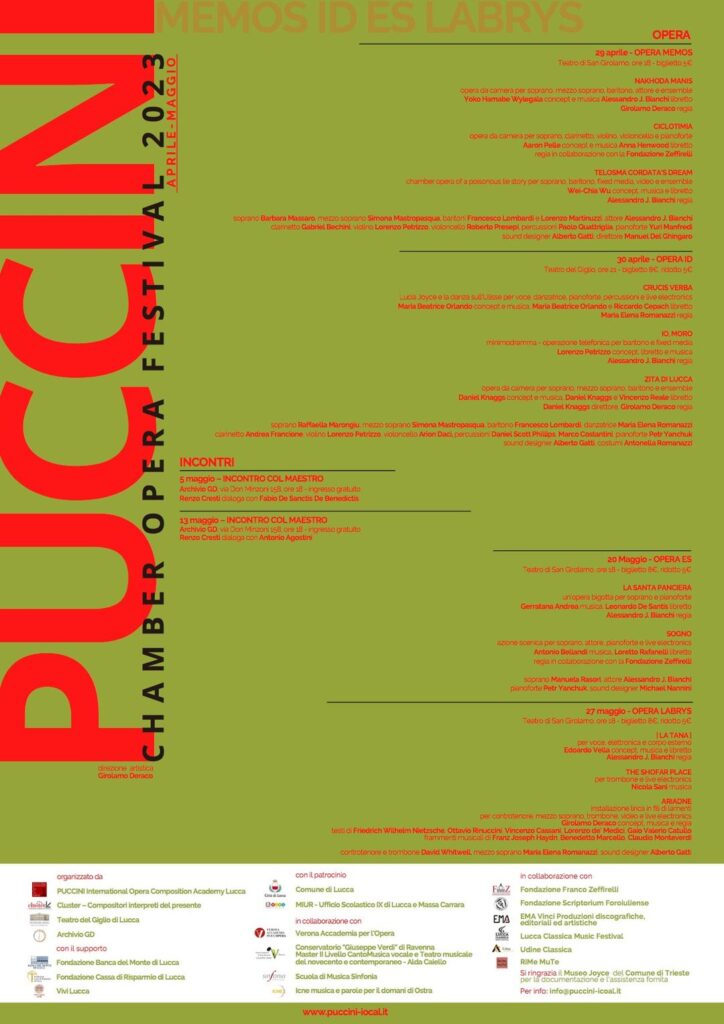… a very enjoyable music that combines tradition with research and modernity… there are also aspects that can call to mind Puccini’s music… a very interesting interweaving…
–RENZO CRESTI, LUCCA IN DIRETTA
The opera combines religious tradition and avant-garde musical language, thus achieving an absolute novelty in the panorama of classical music…
–FABRIZIO VINCENZI, LA NAZIONE
Zita di Lucca – Serva e Patrona (2022)
Chamber opera for soprano, mezzo-soprano, and baritone
Libretto in Italian, by Daniel Knaggs and Vincenzo Reale
Commissioned by: The 2023 Puccini Chamber Opera Festival, Lucca, Italy
Premiere: 30 April, 2023, Puccini Chamber Opera Festival, Teatro del Giglio, Lucca, Italy
Rafaella Marongiù (Zita), Simona Mastropasqua (Matilde), Francesco Lombardi (Mendico/Fatinelli), Girolamo Deraco (stage direction), Daniel Knaggs (conductor).
Characters:
Zita……………………………………………….. soprano
Matilde (head maid)……………………..….. mezzo-soprano
Voice of poor man/Signor Fatinelli…….. baritone
Instrumentation:
Clarinet in Bb (Bass Clarinet in Bb)
Violin
Cello
Piano (Triangle)
Duration: ca. 30 minutes
The opera:
Drawing from accounts written about St. Zita (1218-78), the patroness of the city of Lucca, this opera is a glimpse into the extraordinary life that was so highly regarded that even Dante Alighieri mentions her as “Santa Zita” in his Inferno (between 1307-1328), more than three centuries before her official canonization in 1696. The libretto is written in an Italian linguistically evocative of the 13th century. The opera explores how Zita chose to respond to evil and injustice. Whereas she could have chosen bitter resentment and vengeance, instead she exhibited an incredible interior freedom which led her to chose goodness, mercy, and above all, love, though she would have to accept whatever consequences would follow.
Synopsis:
Zita, the servant of a well-to-do merchant family, uses her position to help the poor and needy. Her housework is so excellent that it provokes the jealousy of others, especially the head servant Matilde, who is determined to ruin Zita. Matilde mounts many accusations against Zita, some of them supported by evidence. In particular, she has witnessed Zita leaving at night and having taken food from the house that is not hers. This is serious, especially since they are living in a time of famine. Matilde vows to expose Zita and tell the master of the house about Zita’s faults when he returns the next day…
Listen below to one of Zita’s arias, Non più cibo, non più paga, and the ensuing scene, sung by Caitlin Aloia, soprano:


